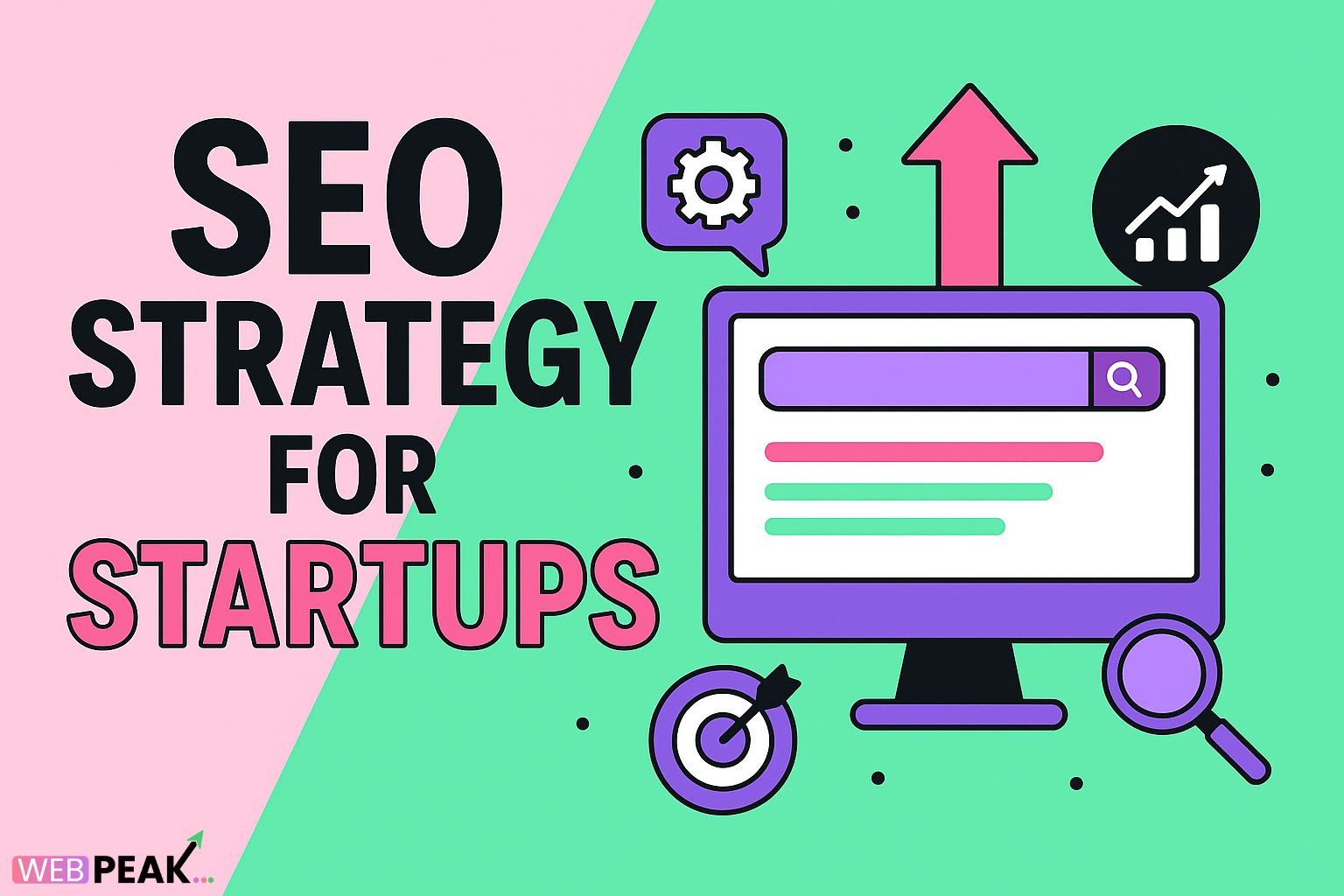Best SEO Strategy for Startups to Rank Faster in 2025
Launching a startup is exciting, but standing out in a crowded digital landscape can be overwhelming. With limited budgets and resources, startups often struggle to compete with established brands. This is where a well-planned SEO (Search Engine Optimization) strategy becomes a game-changer. A smart SEO approach ensures your website ranks higher in search engines, attracts qualified leads, and builds long-term visibility. In this article, we’ll explore a step-by-step SEO strategy tailored specifically for startups.
Why SEO Matters for Startups
SEO is not just about ranking higher; it’s about building trust, credibility, and sustainable growth. Unlike paid ads, which stop generating traffic once the budget is exhausted, SEO creates long-term value. For startups that need to maximize every marketing dollar, SEO is one of the most cost-effective strategies to acquire customers and strengthen brand presence.
- Cost-Effective Growth: SEO generates organic traffic without the continuous cost of paid campaigns.
- Trust and Authority: High search rankings build trust with potential customers.
- Scalability: As your startup grows, SEO scales with you, bringing compounding results.
- Competitive Advantage: Outranking competitors helps establish authority in your niche.
Key Components of a Startup SEO Strategy
1. In-Depth Keyword Research
Keyword research is the foundation of any SEO strategy. Startups should focus on targeting both short-tail and long-tail keywords relevant to their product or service. While short-tail keywords may bring higher traffic, long-tail keywords are less competitive and bring in highly qualified leads.
For example, instead of targeting only “project management software,” a startup could also optimize for “best project management software for startups.” This ensures reaching users with strong purchase intent.
2. Building a Strong Website Structure
Your website’s structure impacts both user experience and search engine crawling. A clear and intuitive navigation system ensures that visitors find what they need quickly while search engines can index your site efficiently.
Make sure to include:
- Logical URL structure with relevant keywords.
- Mobile-friendly, responsive design.
- Fast page load times for better rankings and user experience.
3. On-Page SEO Optimization
On-page SEO involves optimizing individual web pages to improve search rankings. Key elements include:
- Title Tags: Use keywords naturally in titles.
- Meta Descriptions: Write compelling snippets to increase click-through rates.
- Header Tags: Use H1, H2, and H3 tags to structure content.
- Image Optimization: Use descriptive alt text and compressed file sizes.
- Internal Linking: Connect related pages to keep users engaged and help search engines understand your site.
4. Content Marketing for Growth
Content is at the heart of SEO. A startup should develop a content marketing plan that educates, informs, and solves customer problems. Blogs, guides, case studies, and videos can position your brand as a thought leader.
Focus on publishing consistent, high-quality content optimized for target keywords. Use storytelling to build emotional connections with your audience while answering their pain points.
5. Building High-Quality Backlinks
Backlinks, or links from other websites pointing to your site, remain a crucial ranking factor. For startups, gaining backlinks can be challenging but achievable through strategies like:
- Guest posting on niche websites.
- Partnering with influencers or industry leaders.
- Creating shareable infographics and reports.
- Leveraging press releases and PR campaigns.
The key is to earn links from authoritative and relevant websites rather than pursuing low-quality link-building tactics.
6. Local SEO for Startups
If your startup serves a local market, local SEO should be a top priority. Optimizing for local keywords, claiming your Google Business Profile, and gathering customer reviews can help increase visibility in location-based searches. For example, a fintech startup in New York can target “fintech solutions New York” for higher local engagement.
7. Technical SEO Essentials
Technical SEO ensures that search engines can crawl and index your website without issues. Startups should pay attention to:
- XML sitemaps to guide search engines.
- HTTPS for site security.
- Structured data markup for rich snippets.
- Fixing broken links and eliminating duplicate content.
8. Monitoring and Analytics
SEO is not a one-time effort—it requires continuous monitoring and optimization. Tools like Google Analytics, Google Search Console, and third-party SEO software help track performance. Key metrics to watch include:
- Organic traffic growth.
- Keyword rankings.
- Bounce rate and time on site.
- Conversion rates from organic traffic.
Common Mistakes Startups Should Avoid
- Ignoring Mobile Optimization: A large portion of traffic comes from mobile devices, so responsiveness is essential.
- Keyword Stuffing: Overusing keywords damages readability and can trigger search engine penalties.
- Lack of Patience: SEO takes time—expect to see significant results after several months of consistent effort.
- Neglecting Content: Publishing thin or low-quality content reduces authority and visibility.
Why Partnering with Experts Matters
While startups can handle basic SEO in-house, working with a professional agency can accelerate growth and prevent costly mistakes. Agencies bring expertise, tools, and resources that startups may lack. If you’re looking for a trusted partner, consider WEBPEAK. They are a full-service digital marketing company offering Web Development, Digital Marketing, and SEO services to help startups build a strong online presence and achieve measurable results.
Conclusion
A well-executed SEO strategy is essential for startup success. From keyword research and on-page optimization to content marketing and link building, SEO helps build visibility, attract customers, and establish long-term credibility. With consistency, creativity, and the right partners, your startup can compete with industry leaders and carve out its space in the digital marketplace.





